detail profile su friedrich
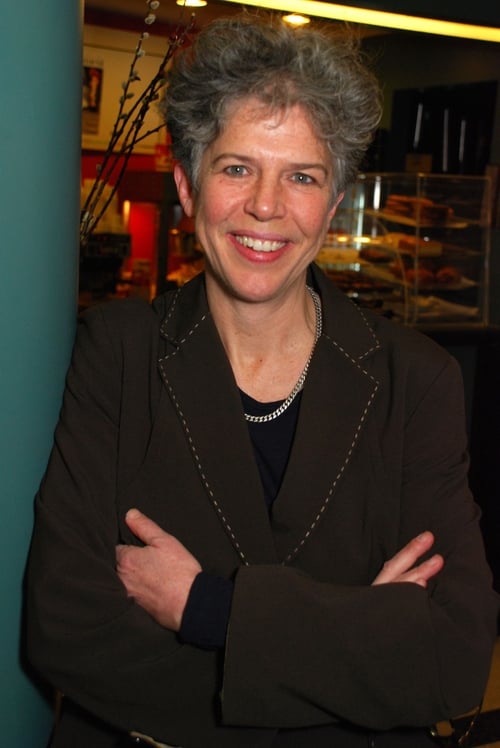
Riwayat Hidup
Su Friedrich has directed twenty-four films and videos since 1978, which have been featured in eighteen retrospectives at major museums and film festivals, including one at the Museum of Modern Art in 2007.
The films have been widely screened at film festivals, universities and art centers, have been extensively written about, and have won numerous awards, including Grand Prix for Sink or Swim at the Melbourne International Film Festival.
Her DVD collection is distributed by Outcast Films.
She teaches video production at Princeton University.
Info Pribadi
Peran Yang Di Mainkan Su Friedrich
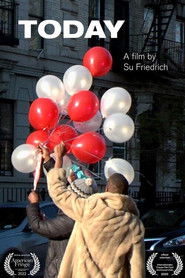 Su Friedrich is a pioneering queer...
Su Friedrich is a pioneering queer...Today 2022
Su Friedrich is a pioneering queer filmmaker who has been making ground-breaking personal films for decades. In Today, she again eschews conventional narrative, observing her world over a six-year period. It’s a time that includes a country vacation and a city cookout. Also the loss of loved ones and the spread of a pandemic—plus the brightness of flowers, both real and fake.
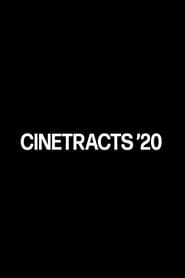 A global portrait documenting the years...
A global portrait documenting the years...Cinetracts '20 2020
A global portrait documenting the year's events, Cinetracts '20 features the work of an international lineup of 20 filmmakers. Capturing the zeitgeist in their own backyard, the artists' short films are the culmination of a year-long residency project.
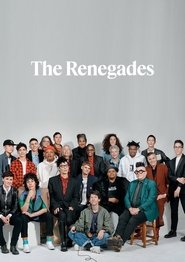 Queer culture and the arts would...
Queer culture and the arts would...The Renegades 2020
Queer culture and the arts would be much poorer without the presence and contribution of butch and stud lesbians, whose identity is both its own aesthetic and a defiant repudiation of the male gaze.
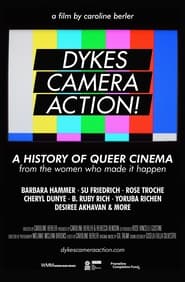 The film examines the ways that...
The film examines the ways that...Dykes, Camera, Action! 2018
The film examines the ways that women directors have contributed to this genre and emphasizes the role that the media play in representation of sexuality and gender, underscoring the power that film has to shape our perceptions of one another. Visually, this documentary comes to life on screen through compelling and intimate original interviews, intercut with emotionally-charged archival footage, photographs, ephemera, inspired music, and film clips.
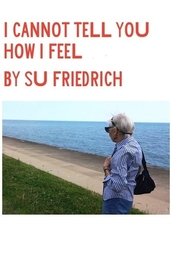 Su Friedrich has taken up the...
Su Friedrich has taken up the...I Cannot Tell You How I Feel 2016
Su Friedrich has taken up the camera again in her ongoing quest to film the battleground of family life. Her mother Lore--who played the lead in The Ties That Bind (1984), a film about her experiences growing up in Germany during the Second World War--plays the lead again, this time kicking and protesting against being moved at the age of 94 from her home in Chicago to an “independent living” facility in New York. Friedrich and her two siblings fill out the supporting roles, cajoling, comforting, and freaking out.
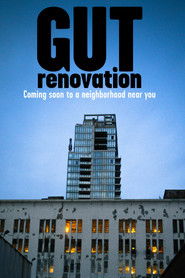 Su Friedrichs personal essay charting the...
Su Friedrichs personal essay charting the...Gut Renovation 2013
Su Friedrich's personal essay charting the destruction of Williamsburg, Brooklyn. After living in the neighborhood for 20 years, the filmmaker was one of many who were forced out after the city passed a rezoning plan allowing developers to build luxury condos where there were once thriving industries, working-class families, and artists. Filmed over many years, it is a scathing portrait of one neighborhood's demolition and transformation.
 The film is primarily a portrait...
The film is primarily a portrait...Practice Makes Perfect 2012
The film is primarily a portrait of Kam Kelly, who teaches West African drumming to students at various New York schools, including Intermediate School 292 in Brooklyn. One of his students, Jessica Jackson, is featured. The piece was commissioned for the “Crossing Brooklyn Ferry” festival at the Brooklyn Academy of Music in 2012.
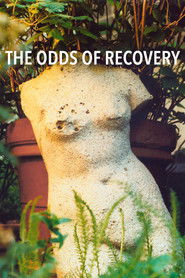 After a twenty year period of...
After a twenty year period of...The Odds of Recovery 2002
After a twenty year period of multiple illnesses and injuries, the filmmaker turns the camera on herself as a way to analyze her chances for a happier, healthier life. In the process, she captures the frustration, tedium and petty annoyances of a revolving-door relationship with the medical establishment, while portraying the complicated web of emotions that accompany any medical problem. With humor and honesty, The Odds of Recovery uses the filmmaker's medical history as a means to address a perennial human problem: the desire to avoid conflict and deny the need for radical change.
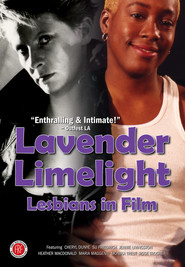 From Go Fish to Paris is...
From Go Fish to Paris is...Lavender Limelight 1998
From Go Fish to Paris is Burning to The Watermelon Woman, this festival favorite goes behind the scenes to reveal seven successful lesbian directors. These talented movie-makers enlighten and entertain as they explore their sexual identity, growing up gay, inspirations and techniques, Hollywood vs. Indie, and of course, love and sex, onscreen and off. The conversations are intimate, the topics unlimited, and the clips from their work enthralling! Featuring Cheryl Dunye, Rose Troche, Jennie Livingston, Monika Treut, Maria Maggenti, Su Friedrich and Heather MacDonald.
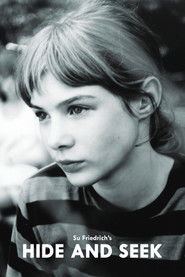 Mixes documentary interviews of memories of...
Mixes documentary interviews of memories of...Hide and Seek 1996
Mixes documentary interviews of memories of lesbian adolescence with the story of the 12-year-old girl Lou discovering her sexuality in 1960s America.
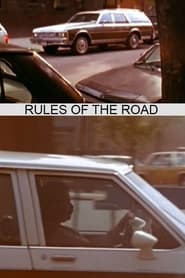 Rules of the Road tells the...
Rules of the Road tells the...Rules of the Road 1993
Rules of the Road tells the story of a love affair and its demise through one of the primary objects shared by the couple: an old beige station wagon with fake wood paneling along the sides.
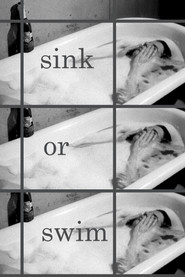 Through a series of twenty six...
Through a series of twenty six...Sink or Swim 1990
Through a series of twenty six short stories, a girl describes the childhood events that shaped her ideas about fatherhood, family relations, work and play. As the stories unfold, a dual portrait emerges: that of a father who cared more for his career than for his family, and of a daughter who was deeply affected by his behavior. Working in counterpoint to the forceful text are sensual black and white images that depict both the extraordinary and ordinary events of daily life. Together, they create a formally complex and emotionally intense film.
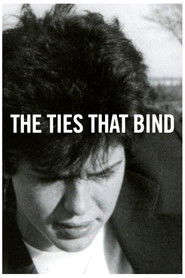 The Ties That Bind is an...
The Ties That Bind is an...The Ties That Bind 1984
The Ties That Bind is an experimental documentary about the filmmaker's mother, who was born and lived in southern Germany from 1920-1950. Through a mixture of personal anecdote and social history, she describes the rise of Nazism, the war years, and the Allied occupation, during which she met her future husband, an American soldier. The Ties That Bind breaks with the usual format of war documentaries, thus allowing a different portrait of the individual to emerge, while it reflects on the current political situation in America and the filmmaker's activities in relation to those issues.
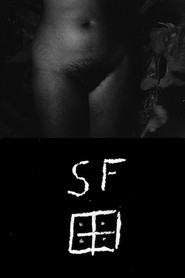 A dream that was left over...
A dream that was left over...But No One 1982
A dream that was "left over" from Gently Down the Stream. Like many dreams, it transformed the familiar world into something more disturbing, contradictory and amoral.
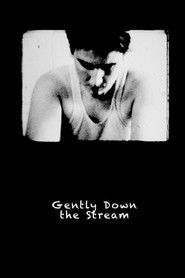 GENTLY DOWN THE STREAM is constructed...
GENTLY DOWN THE STREAM is constructed...Gently Down the Stream 1981
GENTLY DOWN THE STREAM is constructed from fourteen dreams taken from eight years' worth of my journals. The text is scratched directly on to the film so that you hear your own voice as you read. The accompanying images of women, water, animals and saints were chosen for their indirect but potent correspondence to the text.
 Scar Tissue by Su Friedrich is...
Scar Tissue by Su Friedrich is...Scar Tissue 1979
Scar Tissue by Su Friedrich is a filmic version of a white canvas or a silent music piece.The fact that Friedrich never really shows the whole body, but rather plays off of body parts could be read as a desire to show less of the people on the screen, so that the viewer's reading can be generalized. If the "characters" existed as people, the images would inevitably read to be telling a story about these people. The legs and torsos do not signify people; it is the experience of these body parts and the rhythm with which they are portrayed that constitute the work.
 A nun has sexual feelings for...
A nun has sexual feelings for...